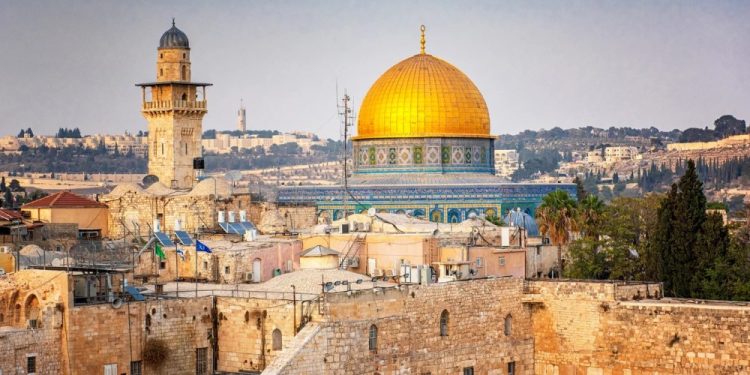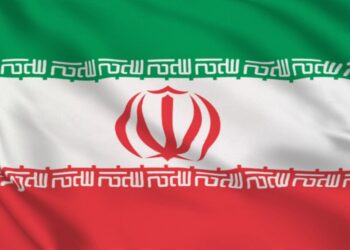Israel is a country located in the Middle East, on the southeastern shore of the Mediterranean Sea. It is a small but highly developed nation known for its rich historical and cultural heritage, as well as its significant geopolitical importance in the region. Its position in the Middle East continues to be a focal point of global attention and diplomatic efforts. Israel holds immense historical and religious significance for three major Abrahamic religions: Judaism, Christianity, and Islam.
It is often referred to as the Holy Land due to its association with key biblical events, religious figures, and sacred sites. Jerusalem, its capital, is a holy city for all three faiths and contains important religious sites, such as the Western Wall, the Church of the Holy Sepulchre, and the Al-Aqsa Mosque. The creation of the modern state of Israel is a complex and multifaceted historical event that is deeply intertwined with the struggles of the Jewish people for self-determination.
Historical background
The roots of the modern state of Israel can be traced back to ancient times when the land of Israel was home to the Jewish people. Ancient Jewish kingdoms, including the Kingdom of Israel and the Kingdom of Judah, existed in the region. The Jewish diaspora, initiated by the Roman conquest in 70 CE, led to Jewish communities spreading across Europe, the Middle East, and beyond.
Zionism
Zionism, as a political and ideological movement, gained momentum in the late 19th century. The term ‘Zionism’ was coined by Theodor Herzl, who advocated for the establishment of a Jewish homeland in response to rising anti-Semitism in Europe. The movement played a pivotal role in the creation of Israel. It advocated for the establishment of a Jewish homeland in Palestine, which was then part of the Ottoman Empire. The First Zionist Congress in 1897 marked a pivotal moment, unifying various Jewish groups under the banner of Zionism.
Balfour Declaration
During World War I, in 1917, the British government issued the Balfour Declaration, a statement of support for the establishment of a “national home for the Jewish people” in Palestine. This declaration laid the groundwork for the eventual creation of Israel.
British Mandate
After the collapse of the Ottoman Empire, the League of Nations granted Britain a mandate over Palestine in 1920. During this period, tensions between Jewish and Arab communities in the region began to escalate. The British administration struggled to find a balance between the two communities.
Jewish immigration
Jewish immigration to Palestine increased significantly during the British Mandate, especially in the 1920s and 1930s. Many Jews from Europe, fleeing persecution and the aftermath of the Holocaust, sought refuge in the region. This immigration led to demographic shifts and heightened tensions between Jewish settlers and the Arab population. The conflicting aspirations for statehood and self-determination fueled the Arab-Israeli conflict.
Arab-Israeli conflict
The Arab population of Palestine strongly opposed the increasing Jewish immigration and the idea of a Jewish state in their midst. Tensions erupted into violence, and the Arab-Israeli conflict intensified. Both sides engaged in a struggle for control over the territory.
UN partition plan
In 1947, the United Nations proposed a partition plan that would divide Palestine into separate Jewish and Arab states, with Jerusalem under international administration. While Jewish leaders accepted the plan, Arab leaders rejected it, leading to further hostilities.
Declaration of the State of Israel
On May 14, 1948, David Ben-Gurion, the head of the Jewish Agency, proclaimed the establishment of the State of Israel. This declaration came on the eve of the expiration of the British Mandate. The newly established Israel was immediately recognized by the United States and the Soviet Union.
Arab-Israeli War
The declaration of Israel led to a full-scale war between the newly formed state and its Arab neighbors, including Egypt, Jordan, Syria, and Iraq. This conflict, known as the 1948 Arab-Israeli War or the War of Independence, lasted until 1949 and had significant consequences for the region. The Arab-Israeli War of 1948-1949 resulted in Israel’s victory, solidifying its independence.
Armistice agreements and borders
Armistice agreements were signed in 1949, leading to the establishment of Israel’s borders. The borders were different from those proposed in the UN partition plan, and Israel gained control over more territory than originally allocated. The Green Line, drawn after these agreements, represented the de facto borders of Israel until the Six-Day War in 1967.
Aftermath and ongoing conflicts
The creation of Israel led to the displacement of Palestinians, resulting in a refugee crisis. It marked the beginning of a series of conflicts and disputes over territory, refugees, and the status of Jerusalem remained contentious, symbolizing the broader conflict’s intractability. Subsequent conflicts, including the Six-Day War in 1967 and the Yom Kippur War in 1973, further shaped the region’s political landscape.
Peace process and diplomacy
Efforts to resolve the Israeli-Palestinian conflict have been ongoing for decades, involving negotiations, peace agreements, and international diplomacy. Key milestones in these efforts include the Camp David Accords in 1978 and the Oslo Accords in the 1990s, and the various attempts at a two-state solution. These initiatives, though bringing moments of hope, faced challenges, hindering a lasting resolution. The status of settlements, borders, and the rights of refugees remained contentious issues in peace negotiations.
Contemporary Israel
Today, Israel is a thriving, modern, and democratic nation with a diverse population. It stands as a technologically advanced nation, known for its innovation and entrepreneurship. Despite this progress, the Israeli-Palestinian conflict persists, with periodic escalations of violence and international efforts to mediate and find a sustainable solution for lasting peace.
Conclusion
The creation of Israel is a result of a long and complex historical process, deeply intertwined with the Zionist movement, the aftermath of World War II, and the Arab-Israeli conflict. The establishment of Israel marked a turning point in the Middle East, with enduring consequences that shape the region to this day. The Israeli-Palestinian conflict remains one of the most significant and challenging issues in contemporary international relations.


































































































































































































